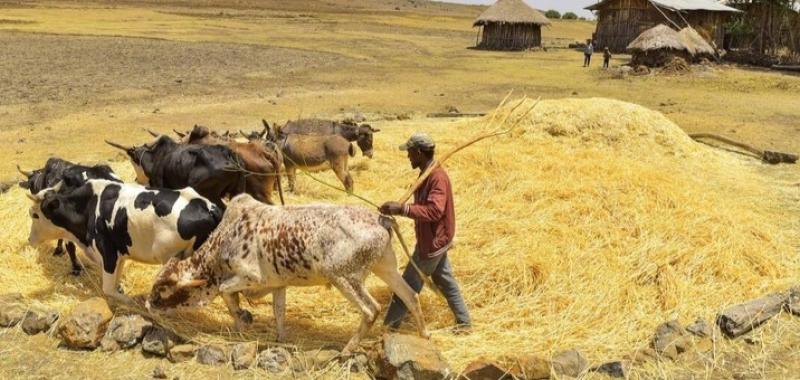Project overview
WFP’s Integrated Risk and Post-Harvest Management (IRMA) initiative in the region unites two proven WFP solutions, R4 and PHL Ventures, to reduce post-harvest losses with improved techniques and bolster farmers’ climate resilience with insurance, ultimately strengthening smallholders’ livelihoods and incomes. By providing simple, effective tools to reduce post-harvest losses and offering insurance to protect against climate shocks, IRMA helps farmers keep more of their harvest, bounce back from setbacks, and earn more from their hard work.
The Problem
Reducing post-harvest losses offers a significant opportunity to strengthen food security in Ethiopia, boost incomes in the agricultural sector, and support the country’s broader economic development goals. Yet, farmers face a range of risks - including drought, pest infestations, and conflict -that threaten agricultural production and reduce household incomes, undermining food and nutrition security. s. To address these challenges, a comprehensive approach is required: to build resilience to climate shocks, improve post-harvest handling and ensure access to essential inputs such as seeds, technology, extension services, and insurance.
The Solution
WFP has launched the Integrated Risk and Post-Harvest Management (IRMA) initiative in Amhara, Ethiopia that combines two proven WFP solutions (namely R4 & PHL Ventures). By combining R4’s climate risk insurance with PHL Ventures’ post-harvest solutions, the IRMA initiative offers a comprehensive approach to loss reduction, transferring risks farmers can’t control, while tackling those they can. This integration helps reduce both climate-related shocks and post-harvest mismanagement, challenges that have long contributed to food insecurity in Ethiopia. While many programmes focus on increasing production, IRMA focuses on protecting what farmers already grow—ensuring more reaches the table and the market.
Smallholder farmers in Amhara, Ethopia gather with a WFP Innovation Accelerator colleague to share their stories. Photo: WFP Ethopia / Ishank Gorla
Results
To strengthen smallholder farmers’ resilience to climate shocks, 8,500 vulnerable farmers will receive area yield index insurance (AYII) during the 2024–2025 pilot phase. This insurance will provide vital financial protection against losses by climate change and pest-related yield losses. In addition, 2,000 farmers will be trained and supported in post-harvest loss reduction technologies, helping them cut losses, improving food quality, enhancing safety and nutrition and ultimately increasing their incomes.



